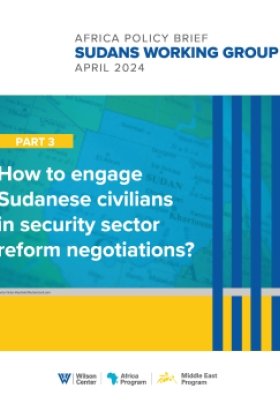Rediscovering the Umma
Ina Merdjanova, former Southeast Europe policy scholar, releases her latest monograph Rediscovering the Umma. "Ina Merdjanova discusses the conditions and role of Islam in relation to post-Ottoman nation-building, the communist period, and post-communist developments in the Balkans, focusing in particular on the remarkable transformations experienced by Muslim communities after the end of the Cold War. Amidst multiple structural and cultural transitions, they sought to renegotiate their place and reclaim their Islamic identities in formally secular legal and normative environments, mostly as minorities in majority-Christian societies." (Oxford University Press)

Ina Merdjanova, former Southeast Europe policy scholar, releases her latest monograph Rediscovering the Umma (Oxford University Press, 2013).
"Ina Merdjanova discusses the conditions and role of Islam in relation to post-Ottoman nation-building, the communist period, and post-communist developments in the Balkans, focusing in particular on the remarkable transformations experienced by Muslim communities after the end of the Cold War. Amidst multiple structural and cultural transitions, they sought to renegotiate their place and reclaim their Islamic identities in formally secular legal and normative environments, mostly as minorities in majority-Christian societies." (Oxford University Press)
Ina Merdjanova is currently an Adjunct Professor in Religious Studies at Trinity College, Dublin, Ireland.
Contributor
Ina Merdjanova
Director of the Center for Interreligious Dialogue and Conflict Prevention in the Scientific Research Department at Sofia University, Bulgaria

Global Europe Program
The Global Europe Program is focused on Europe’s capabilities, and how it engages on critical global issues. We investigate European approaches to critical global issues. We examine Europe’s relations with Russia and Eurasia, China and the Indo-Pacific, the Middle East and Africa. Our initiatives include “Ukraine in Europe” – an examination of what it will take to make Ukraine’s European future a reality. But we also examine the role of NATO, the European Union and the OSCE, Europe’s energy security, transatlantic trade disputes, and challenges to democracy. The Global Europe Program’s staff, scholars-in-residence, and Global Fellows participate in seminars, policy study groups, and international conferences to provide analytical recommendations to policy makers and the media. Read more










